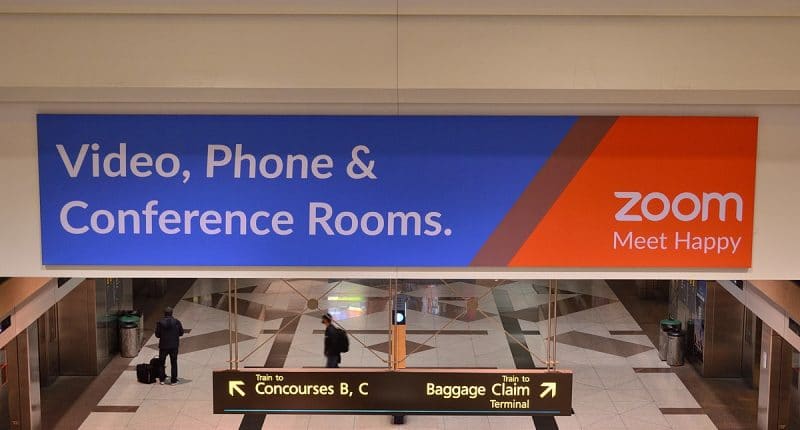Zoom Video Communications Inc., whose video-conferencing app Zoom gained unprecedented popularity in March last year (and has not looked back since), has been battling lawsuits for months. In April 2020, it was hit with a class-action lawsuit by one of its shareholders, who alleged that the company failed to disclose issues with its video conferencing platform’s privacy and security. Later, in August, a new lawsuit claimed that it misrepresented the level of security used to protect communications on its platform, giving users “a false sense of security” and violating D.C.’s consumer protection law. On Friday, Zoom defeated the most serious claims in a lawsuit that claimed that it illegally shared users’ personal information with Google and Facebook.
With great popularity comes a great many problems, it seems. The Zoom app garnered an unprecedented amount of popularity, and its demand soared during the pandemic as online learning and remote working became the new norm. Simultaneously, the video-conferencing platform has faced privacy and security scrutiny as its popularity has surged. Zoom claimed earlier that its platform can use end-to-end encryption, before clarifying that the platform uses a lower level of encryption.
“It is unclear if Zoom has shared, let alone sold, any of plaintiffs’ data,” U.S. District Judge Lucy Koh in San Jose, California, said in her ruling late Thursday.
The lawsuit in question alleged that Zoom shared user data with Facebook even if the user did not have a Facebook account, “allowing Facebook to conduct near-perfect, detailed surveillance of individual lives.” It was claimed that the platform had revealed users’ activities, the nature of meetings, and identities of participants, while the company countered that the information was “non-sensitive technical device data.”
Zoom meetings have often been ‘crashed’ by outsiders – intruders have gained unauthorized access to these meetings and hijacked them to display pornography, graphic violence, or racist language. This has been noticed quite often during online classes taken by schools, where attendees had complained about the displaying of pornography in their meetings. The company had argued that under Section 230 of the Communications Decency Act, which provides broad protection for internet platforms, the company can’t be held liable for content presented by third parties. On Friday, Koh accepted Zoom’s argument.
“Appalling as this content is, Congress has immunized internet companies from liability for failing to edit or block user-generated content,” Koh wrote in her ruling. “The bulk of plaintiffs’ Zoombombing claims lie against the ‘Zoombombers’ who shared heinous content, not Zoom itself.”
There is good news for users, as Koh allowed them to pursue their claims that Zoom breached its contract with them, and gave the plaintiffs permission to revise and re-file many of the allegations in the suit that she dismissed.
The Tech Portal is published by Blue Box Media Private Limited. Our investors have no influence over our reporting. Read our full Ownership and Funding Disclosure →





